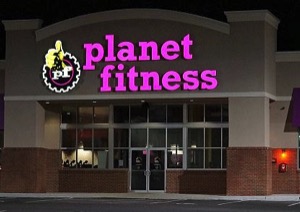
“‘Homosexuality’ remains an identity that is subject to a ‘we/they’ distinction. People who would not say ‘I am like this, but black people are like that,’ or ‘we are like this, but women are like that.’ or ‘we are like this, but Jews are like that,’ find it simple to say, ‘homosexuals are like that, but we are like this.’ That’s what makes our struggle the central struggle for human rights.”
Bayard Rustin, the black and gay civil rights icon, wrote that in his 1986 essay From Montgomery to Stonewall. Substitute “transgender” for “homosexual” in that paragraph, and that’s where we are in 2015. People will believe and say trans people will do the most horrible things in women’s restrooms and locker rooms because most people don’t know any trans people – the “we/they” distinction is definitely manifesting itself in public discourse.
I read Christian social conservative leaders, such as the Family Research Council’s Tony Perkins, commenting that we need state and federal religious freedom protection bills for business owners who want to have the freedom not to choose to serve LGBT community members – such as the freedom to not make cakes or create flower arrangements for same-sex weddings.
In Florida, the House Civil Justice Committee though has passed a bill that the article Horrific Florida Bill Would Imprison Trans People for Using Public Bathrooms at Slate describes this way: “According to the bill’s text, any trans person who enters a ‘single-sex public facility’ that doesn’t match their ‘biological sex’ is guilty of a first-degree misdemeanor. A single-sex public facility includes bathrooms “maintained by an owner of public accommodations, a school, or a place of employment” – basically, any public bathroom in the entire state. Any trans person who violates the act could be sentenced to one year in prison.”
Apparently, social conservatives, especially Christian social conservatives, talk about freedom only in the context of the freedom for people who agree with them. At least in Florida, it appears they want socially conservative Christian business owners to be able to deny services to LGBT community members while at the same time mandating business owners discriminate against trans people using public restrooms.
In the past week, Planet Fitness’ “No Judgment” policy has made it into the news. A trans woman used the women’s locker room, and a cis woman complained to management. When the cis woman was informed that the “No Judgment” policy meant that trans women could use the locker rooms that aligned with their sincerely held gender identities, she went back four days in a row to spread talk to women in her local Planet Fitness’ gym in an attempt to get others to complain about the policy. The gym then revoked the cis woman’s gym membership and she went to the press.
“Here’s what I think,” said Keith Ablow on Fox News talking about the incident. “I think it’s not good enough. The policy is said to be accepting of everyone, but it isn’t. Because the truth is people have feelings about this. They’re not settled on the fact that when somebody says – declares – ‘I am of this gender,’ but they are anatomically and genetically of another gender, people who see that individual have strong feelings like ‘Look, I’m being viewed, potentially, while unclothed by someone who looks to me to be of the opposite gender.’ They need to account for that too and not judge the folk who feel exposed.”
“You’re kicking out members because they feel uncomfortable that someone who seems to be a man to them and is genetically is looking at them naked when they’re unclothed as women? That’s craziness,” Ablow added. “…We are being bullied into accepting things that are untrue to our core feelings.”
The implications, of course, are that trans women as a community are voyeurs or predators. Perhaps more significantly, trans women like me are implicitly described as inhuman monsters incapable of feelings of our own. This is the public discourse: people are finding it simple to say “transgender people are like that, but we are like this.”
Trans people now are at the center of the “we/they” distinction in America, and that’s what makes trans people’s struggle the current central struggle for human rights in this country.











